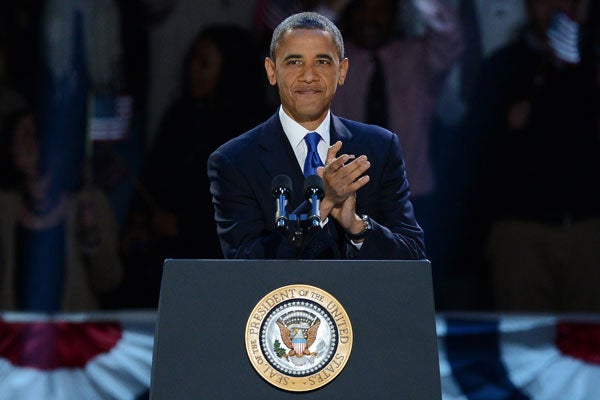Pride Goeth Before a Fall
Owen Graham /
In an op-ed in The Washington Times, Heritage’s Kim Holmes voices concerns about how pride may prevent President Obama from reassessing or changing course on certain foreign policies, leaving him and the United States unprepared for the daunting challenges facing the country. Any student of history recognizes that concerns on the dangers of pride are warranted.
Aristotle, Marcus Aurelius, and Shakespeare, to name a few, have warned against this age-old character flaw. And we have all heard the admonition, “Pride goeth before a fall.” As history illustrates, the consequences of pride for kings, military commanders, sitting Presidents—and nations—can be devastating.
The concern arose from Obama’s election victory speech, in which the President compared his re-election to triumphing in war. While the President has a right to be proud, this was a bit too much. This was not the first sign of hubris, however.
To give just one example, the President has used the personal pronouns I and me regularly in remarks. This has been particularly pronounced in recent references to the killing of Osama bin Laden. The President could have taken more time to credit the previous Administration for laying the foundation of this strike and the Navy SEAL team that actually executed it.
Another accomplishment this Administration appears proud of is its systematic reductions to defense funding. Rather than take pride in this phony attempt to reduce national debt, the President should recognize that the military is already facing readiness issues without even accounting for these cuts. Furthermore, if the Obama Administration wants to take pride in its fiscal actions, it should address the true debt drivers: entitlement spending.
At any rate, there is little room for celebration and no room for pride when considering the major foreign policy challenges facing the U.S. At the top of the list is Iran. After more than four years of failed efforts at negotiations by this Administration, Tehran is closer to developing a nuclear weapon—a truly nightmare scenario. Rational or not, Iran with a nuclear weapon is a real danger.
American leadership has been grossly absent on Syria and in the Middle East. This is unacceptable considering the degree of U.S. interests at stake. This policy is contributing to a wider regional conflict.
In addition to these challenges, President Obama will likely face many others, such as managing the military rise of China. Beijing is already pushing back at nearly every turn on the Administration’s “rebalance” or “pivot” to Asia.
These challenges will require the President to be as objective as possible and, if necessary, willing to reconsider or reassess some of his foreign policies. Let’s hope he’s capable of doing so and that his re-election doesn’t go to his head. The consequences could be serious.

